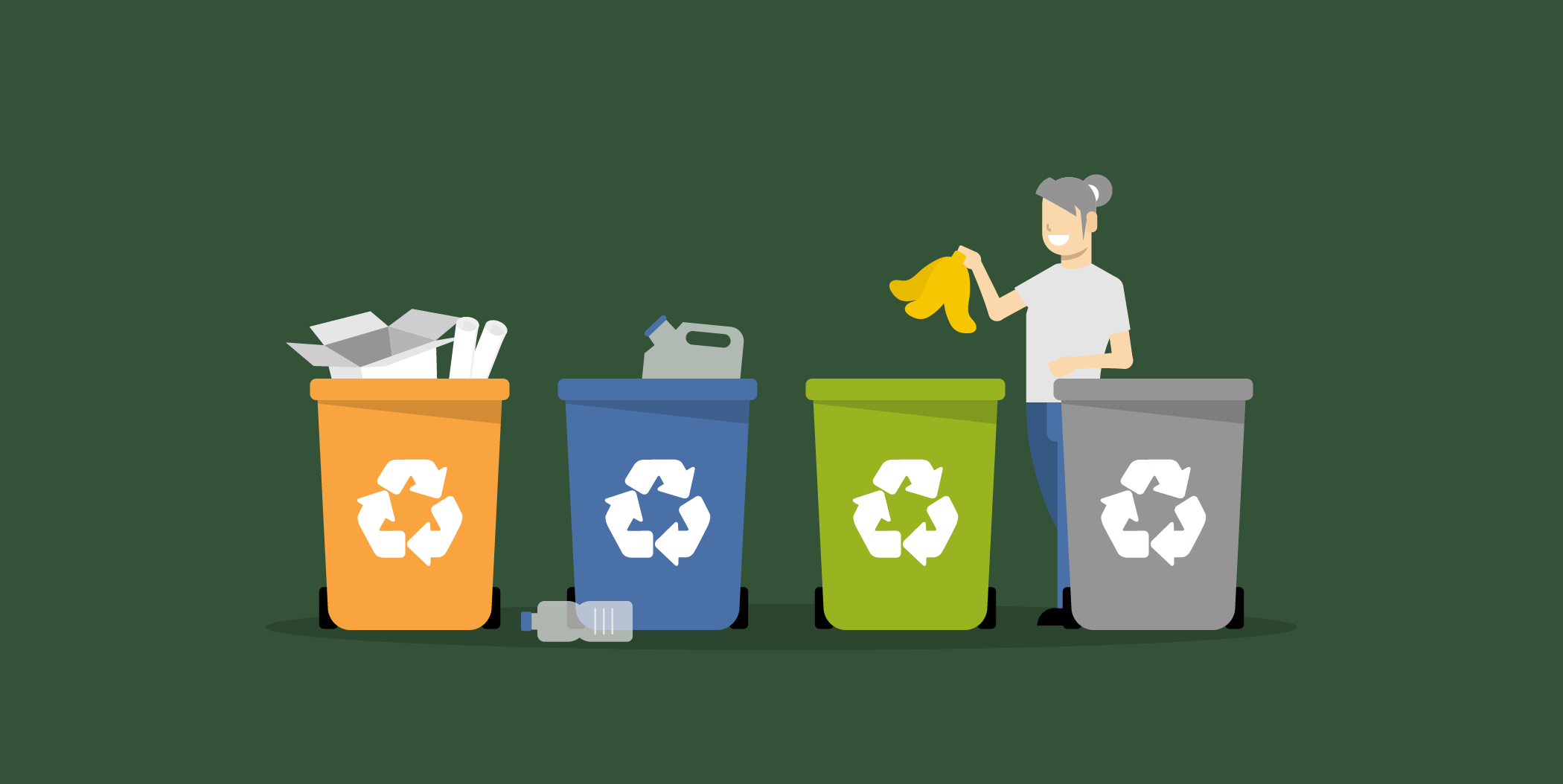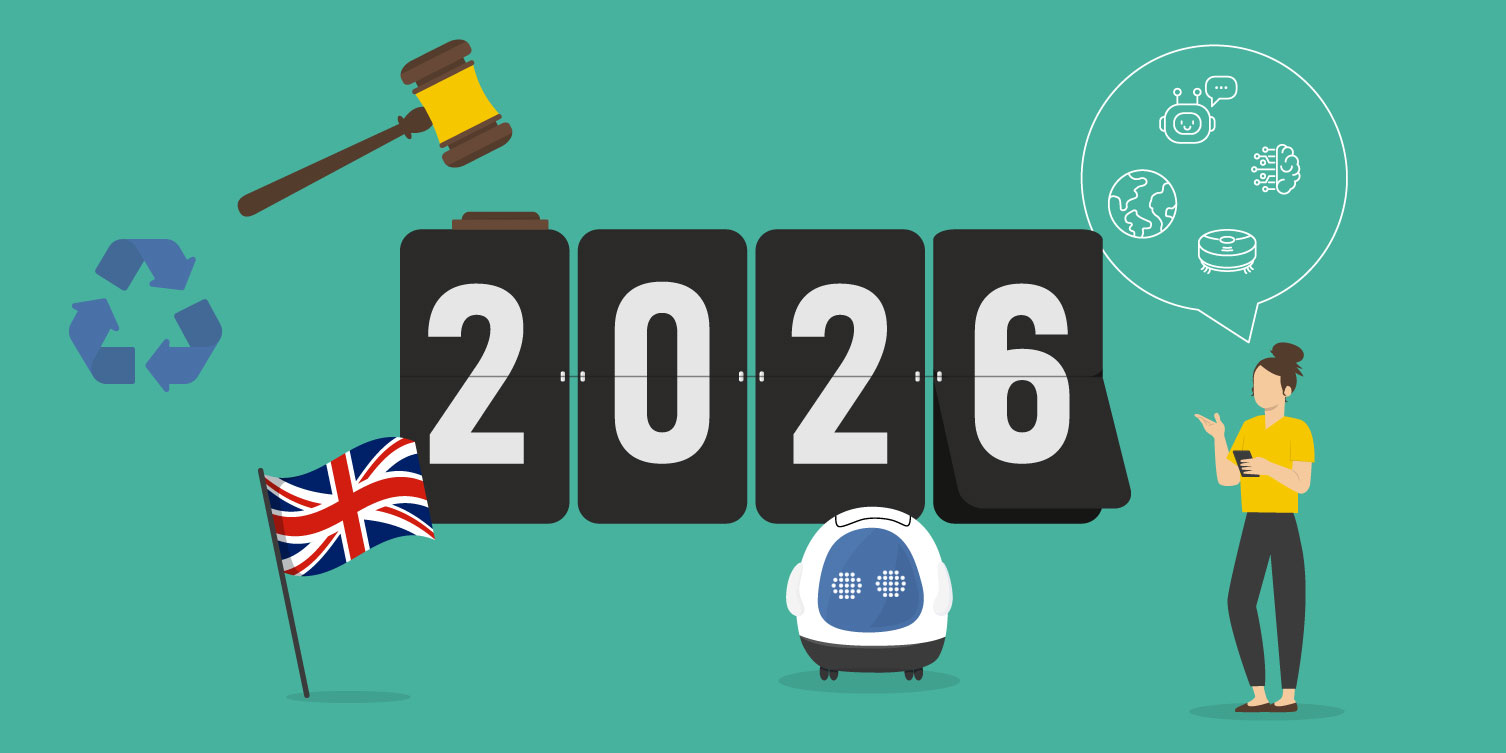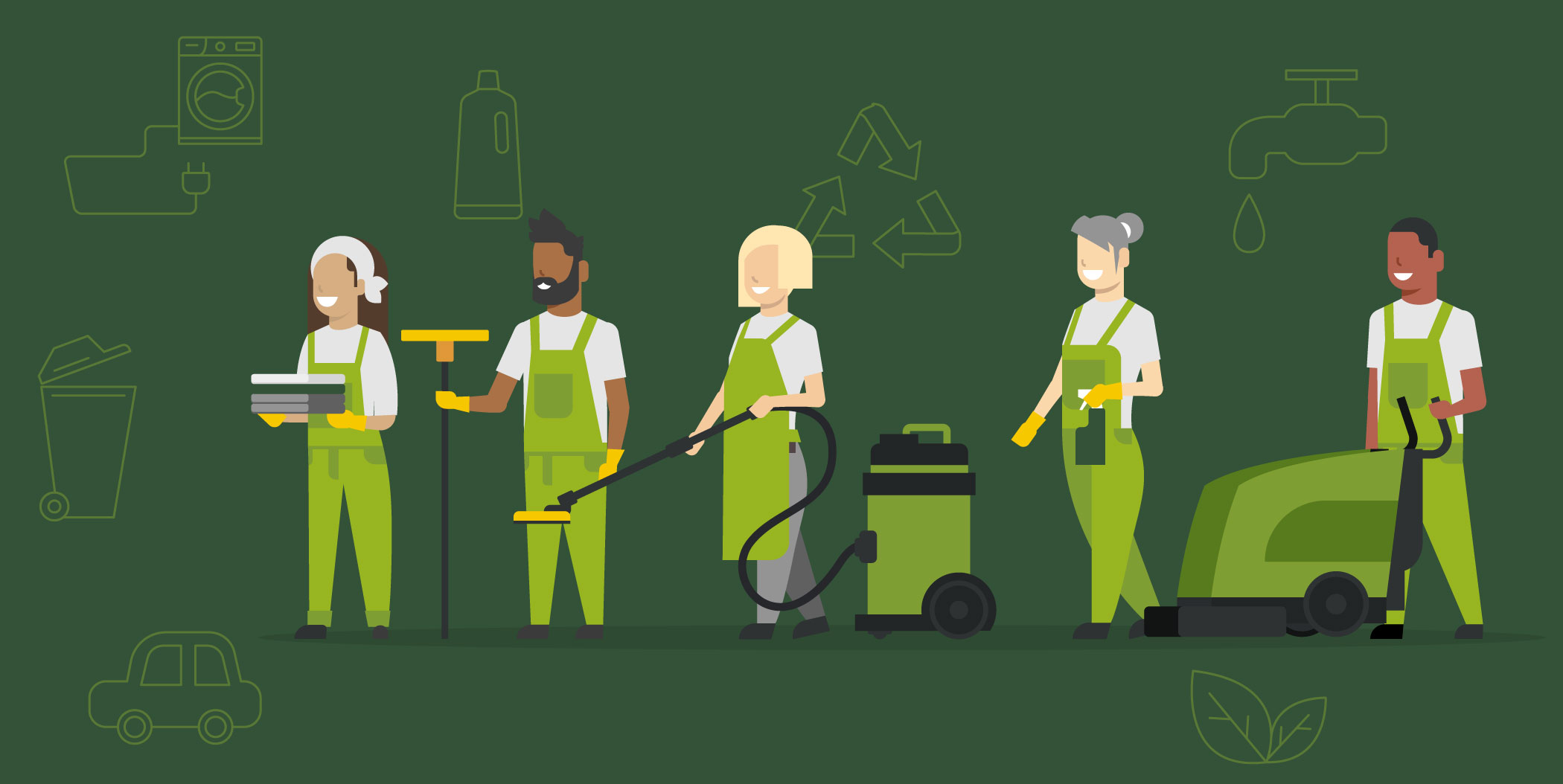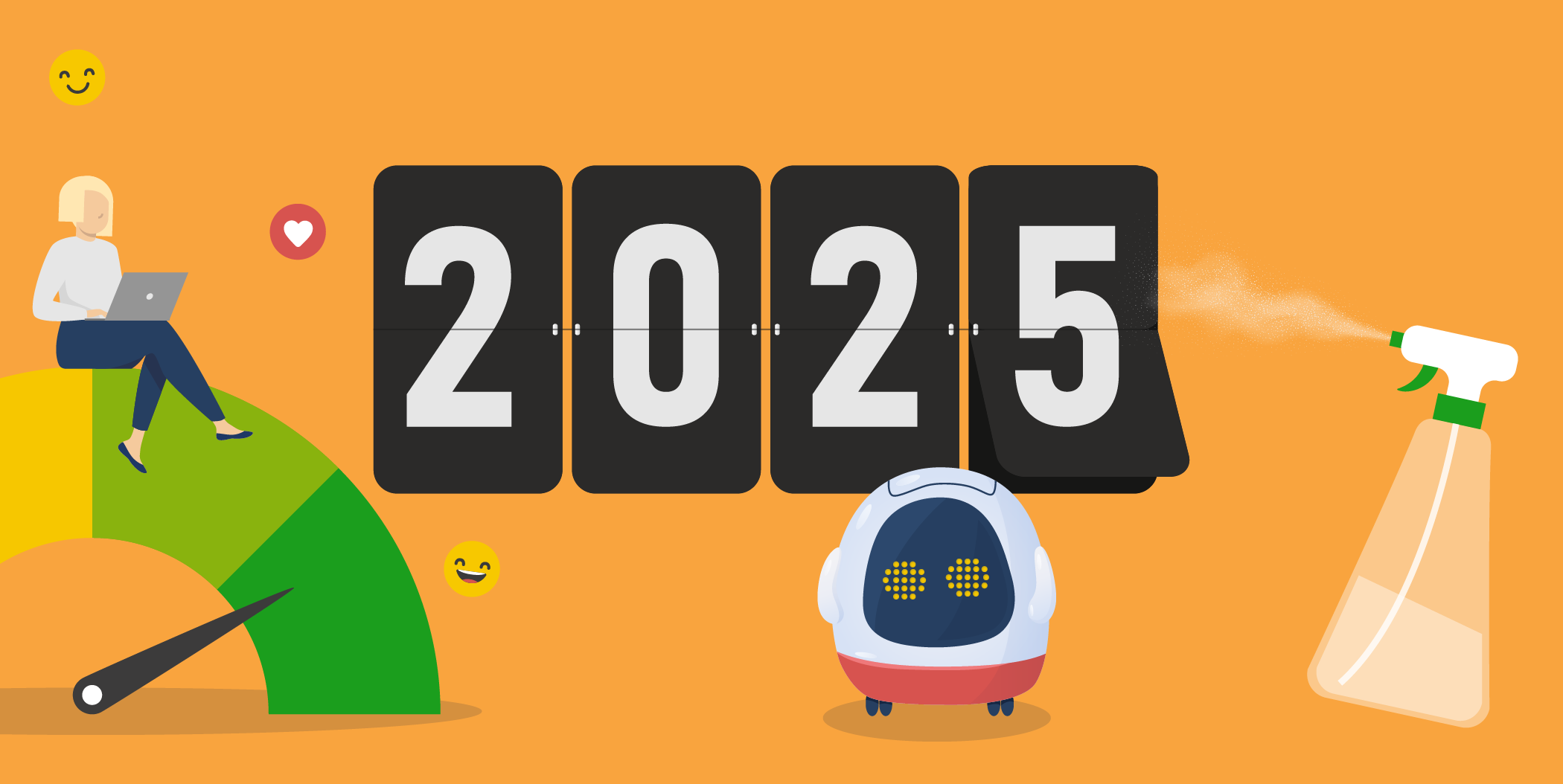We’re now four months into the Simpler Recycling 2025 legislation, and businesses across England are adjusting to the new workplace waste management. But compliance doesn’t happen on its own, it depends on the people handling the bins every day. That includes your cleaning team.
In this blog, we’ll recap what the 2025 waste legislation require, explain what they mean for cleaning companies like yours, and show how your staff play a key role in keeping clients compliant. You’ll also get practical tips to avoid common mistakes, and turn the regulations into an opportunity to add value.
Need a Refresher on Simpler Recycling? Start Here
Simpler Recycling for businesses is a legal requirement that came into effect in England on 31 March 2025. It says that all workplaces must separate their waste into three key streams before it’s collected:
- Dry recyclables: paper/card, plastic, metal, and glass
- Food waste: even if there’s only a little
- Residual waste: anything that can’t be recycled
Micro-businesses with fewer than 10 full-time employees have until 31 March 2027 to comply, but everyone else must already be following the rules.
If waste is mixed incorrectly or contaminated, it may be rejected or incur extra fees. That’s why the person who handles the bin matters, and in most workplaces, that’s your cleaning staff.
Read the whole legislation at the UK Governments’ own site.
How Do Waste Legislations Differ Across the UK?
Wales
Wales introduced its new workplace waste management rules on 6 April 2024. The rules apply to all workplaces, regardless of size or sector.
Businesses must separate the following waste streams before collection:
• Paper & card
• Glass
• Metal
• Plastic
• Food waste
Non-compliance can lead to £300+ fines or prosecution.
Scotland
Workplace recycling rules have been in place since 2014, and most businesses are already required to comply.
Businesses must separate the following:
• Paper & card
• Glass
• Metal
• Plastic
• Food waste (if your site produces over 5kg per week
Alignment with Simpler Recycling is expected by 2026
Northern Ireland
There is no new national Simpler Recycling law yet, but businesses must follow existing waste legislation.
Businesses must:
• Separate paper, card, plastic, metal, and glass where practical
• Keep waste uncontaminated and ready for reuse or recycling
• Food waste (if your site produces over 5 kg per week)
A national update to align with Simpler Recycling may come after 2025.
How Cleaners Are Pulled Into Waste Legislation (and Why It Matters)
We get it, cleaning teams aren’t waste management experts like sanitation workers. You’re not the one signing waste contracts, but your team is likely the last ones to handle the waste before it’s collected. And that makes your role more important than most people realise.
You’re already managing client demands, staff issues, and tight schedules. Now, with new waste regulations in place, your team is expected to know what goes where — and mistakes can lead to blame, penalties, or even lost contracts.
How Your Cleaning Company Can Stay Compliant
Compliance doesn’t have to be complex. With a few smart updates, your team can confidently manage their part in workplace waste management:
- Use clear signage and colour-coded recycling bins
- Provide simple staff training, especially for temps and night shifts
- Implement digital checklists to make tasks easy to follow and track
Tools like CleanManager help you structure and document this, from assigning site-specific waste tasks to capturing photo proof and logging contamination issues.
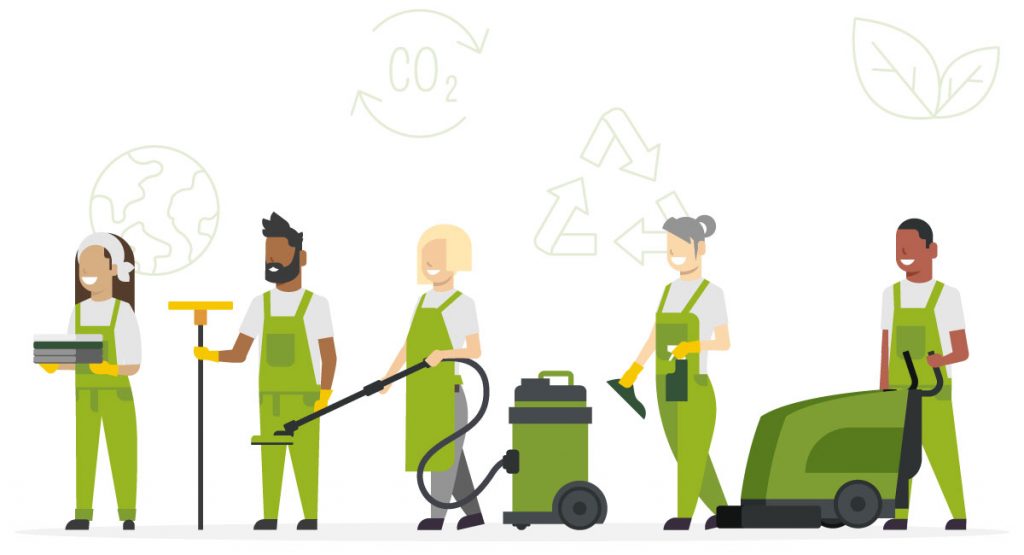
Why Supporting Compliance Benefits Your Cleaning Company
This isn’t just about avoiding fines.
By supporting simpler recycling for businesses, your team becomes more valuable. You help clients
- Meet their ESG goals
- Pass audits with ease
- Reduce waste management costs
And for you? It means better client retention, stronger bids, and a reputation for being proactive and professional.
If you want to hear more about the role of cleaning in environmental sustainability, then check out our article Cleaning with a Conscience: Uncovering Environmental Sustainability.

FAQ: Simpler Recycling and Cleaning Companies
What is Simpler Recycling 2025?
Simpler Recycling 2025 is a legal requirement for businesses in England that came into effect on 31 March 2025. It mandates the separation of waste into dry recyclables, food waste, and residual waste before collection.
Who needs to comply with Simpler Recycling rules?
All businesses in England, except micro-businesses with fewer than 10 full-time employees, must already comply. Micro-businesses have until 31 March 2027.
How does Simpler Recycling affect cleaning companies?
Cleaning staff are often the last people to handle waste before it’s collected. That means cleaning companies play a key role in ensuring waste is properly sorted and uncontaminated — helping clients avoid penalties and stay compliant.
What happens if waste is mixed or not sorted correctly?
If waste is contaminated or placed in the wrong bin, it may be rejected by the collector or incur additional fees. In some UK nations, non-compliance can lead to fines or prosecution.
What are the workplace recycling rules across the UK?
England: In effect since March 2025
Wales: 6 streams separated since April 2024
Scotland: Workplace rules since 2014
Northern Ireland: Following general waste legislation, national update expected
How can cleaning companies ensure compliance?
Cleaning teams can stay compliant by using clear signage, providing basic training, and using tools like CleanManager to streamline waste management.
Why is waste legislation important for cleaning companies?
Supporting clients with compliance helps cleaning companies retain contracts, enhance their professional image, and add value beyond routine cleaning tasks — especially when tied to ESG goals or audits.
